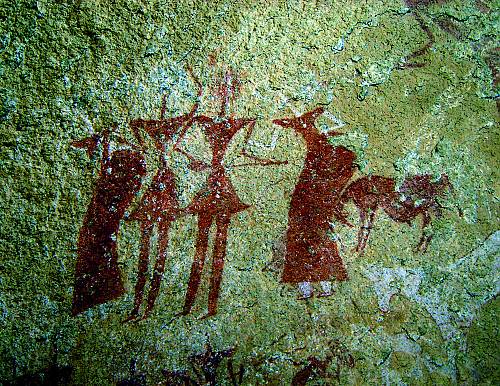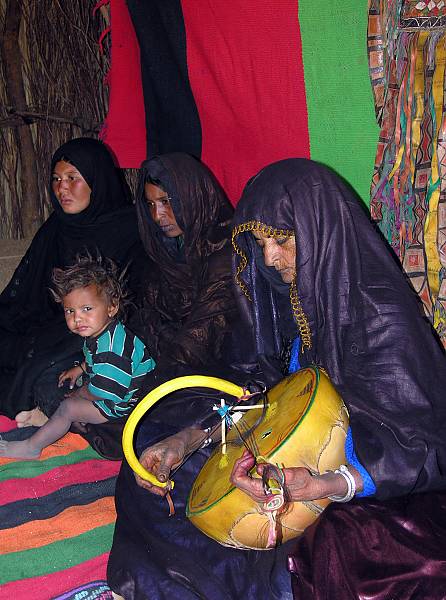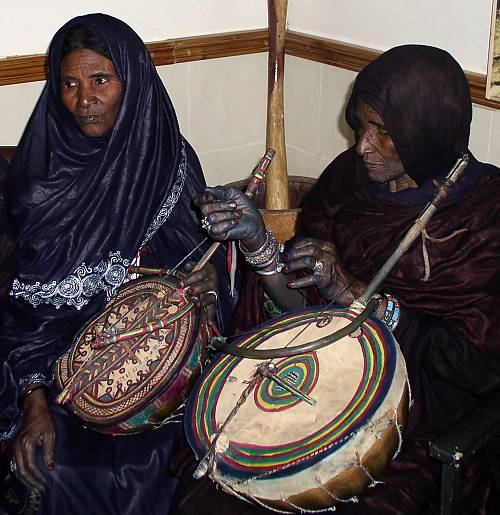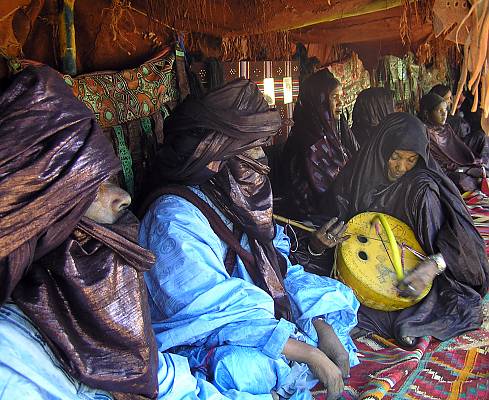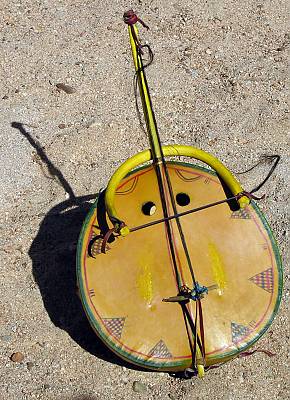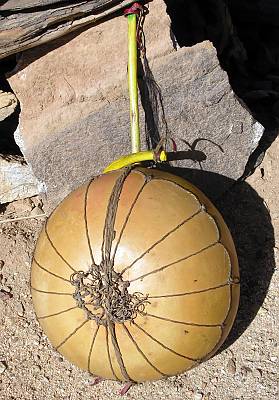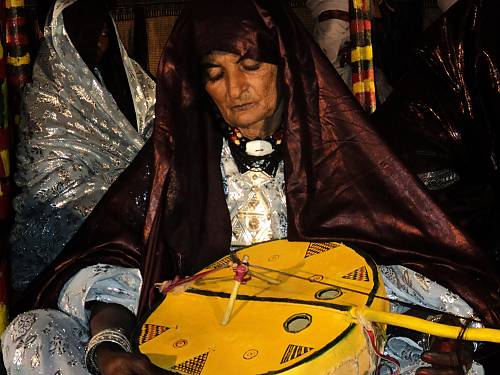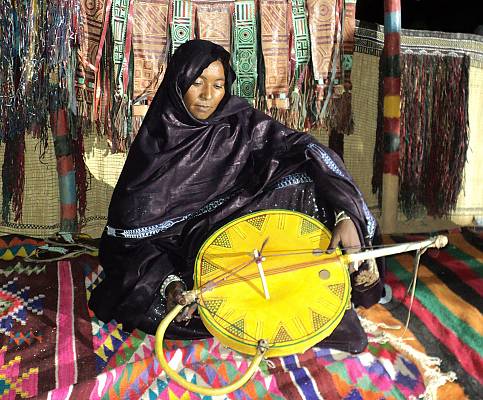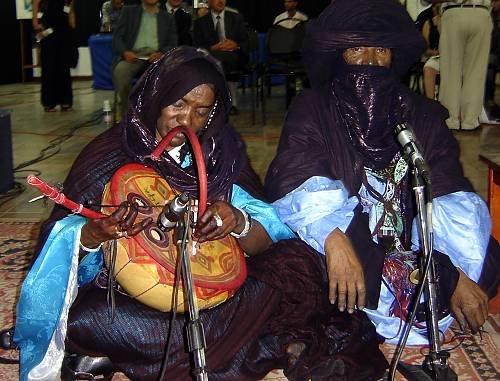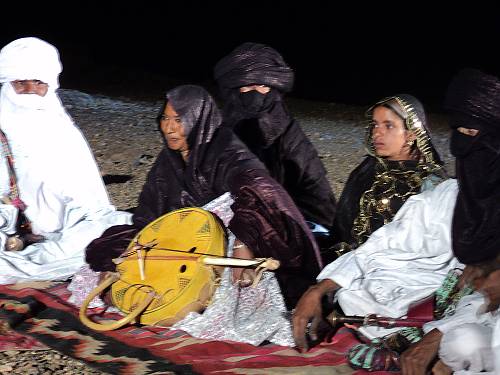Practices and knowledge linked to the Imzad of the Tuareg communities of Algeria, Mali and Niger
Inscribed in 2013 (8.COM) on the Representative List of the Intangible Cultural Heritage of Humanity

Imzad music is a characteristic feature of Tuareg communities and is performed by women on a single-stringed bowed instrument known as the Imzad. The musician sits with the instrument on her knees and plays it with a wooden, arched bow. Imzad combines music and poetry and is frequently performed on ceremonial occasions in Tuareg camps. The instrument provides melodic accompaniment to poetic or popular songs glorifying the adventures and feats of past heroes: the songs are composed, recited or sung by men, with both men and women participating by producing modulated or high-pitched cries. The music also has a therapeutic function, being played to drive away evil spirits and alleviate the pain of the sick. The sound of the Imzad reflects the player’s feelings and moods, and an inability to master a performance is considered a misfortune. Women craft the instrument from half a dried, hollowed-out gourd: a skin is stretched across the open side and pierced with sound holes in the shape of rosettes, and a wooden bridge in the shape of a V is then added. Imzad musical knowledge is transmitted orally according to traditional methods of observation and assimilation.
